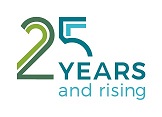Case study

Creating global communities: Turning the tide on marine litter
27 Mar 2017
 Led by the Environmental Research Institute at North Highland College UHI (part of the University of the Highlands and Islands), the Circular Ocean project aims to tackle the increasing problem of marine pollution by encouraging the upcycling and repurposing of plastic litter.
Led by the Environmental Research Institute at North Highland College UHI (part of the University of the Highlands and Islands), the Circular Ocean project aims to tackle the increasing problem of marine pollution by encouraging the upcycling and repurposing of plastic litter.
Approximately eight million tonnes of plastic litter enters the seas and oceans each year. Many seabirds, mammals and turtles die as a consequence of consuming or being entangled in discarded plastic, with the economic damage of marine plastic waste estimated at almost €12bn. Due to its durability, marine plastic may take hundreds to thousands of years to fully breakdown. With plastic continuing to accumulate in the ocean, research suggests that our seas may contain 155 million tonnes of plastic by 2025. This has significant implications for the overall health of marine ecosystems and food chains.
The Circular Ocean project aims to tackle the increasing problem of marine pollution by encouraging the upcycling and repurposing of plastic litter. Led by the Environmental Research Institute at North Highland College UHI, the project is supporting communities and entrepreneurs across northern Europe and the Arctic to realise the economic opportunities of discarded marine plastic. The project is particularly focused on fishing nets and ropes which currently account for up to 10% of marine litter.
In remote regions, renowned for their natural beauty and wild environments, monitoring, collecting and recycling marine litter can be difficult due to low population densities and prohibitive transport costs. To overcome these obstacles, the Circular Ocean project is creating an online network to allow anyone to access and share practical and innovative ideas on how to reuse litter. Marine litter has already been used to make new products including trainers, rucksacks, socks, jackets, skateboards, carpet tiles and sunglasses. It is hoped that such eco-innovation, using resources otherwise wasted and lost to the economy, will encourage the development of local businesses and benefit rural economies.
The €1.5m project, which runs from October 2015 to September 2018, is being funded by the EU’s Northern Periphery and Arctic Programme. As well as researchers at the Environmental Research Institute in Thurso, project partners include representatives from the Centre for Sustainable Design in England, Macroom E in Ireland, the Arctic Technology Centre in Greenland and the Norwegian University of Science and Technology.
In October 2016, Circular Ocean won the inagural Public Choice Award at the European Commission’s RegioStars Awards. The awards aim to identify good practices in regional development and to highlight original and innovative projects which could inspire other regions.